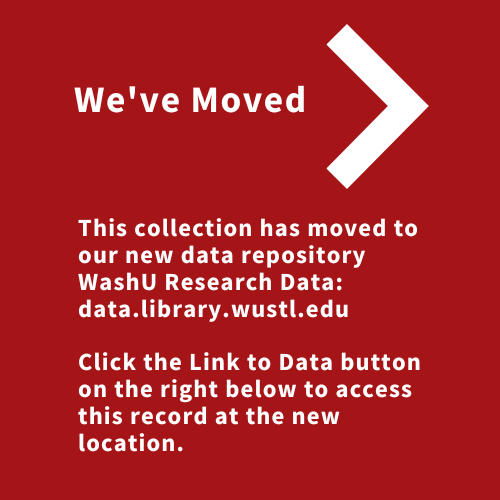Participation, Survey, and Start-Up License Agreement Data from the LEAP Program at Washington University in St. Louis
ResourceType
Dataset
DOI
https://doi.org/10.7936/z5q6-qb66
Embargo Period
9-1-2022
Grant/Award Number and Agency
This research was supported by the National Center For Advancing Translational Sciences of the National Institutes of Health under Award Number TL1TR002344. The content is solely the responsibility of the authors and does not necessarily represent the official views of the National Institutes of Health.
Abstract
This data was compiled and analyzed to for a publication describing the operations and impact of the LEAP program at the Skandalaris Center for Interdisciplinary Innovation and Entrepreneurship at Washington University in St. Louis (WUSTL). It includes anonymized LEAP project, participation, and post-cycle survey data from the LEAP 2015 Spring cycle until the 2020 Fall cycle. It also also includes anonymized start-up license agreement data from the WUSTL Office of Technology Management (OTM).
Paper abstract: The last fifty years have seen an increasing dependence on academic institutions to develop and commercialize new biomedical innovations, a responsibility for which many universities are ill-equipped. To address this need, we created LEAP, an asset development and gap fund program at Washington University in St. Louis (WUSTL). Beyond awarding funds to promising projects, this program aimed to promote a culture of academic entrepreneurship, and thus improve WUSTL technology transfer, by providing university inventors with individualized consulting and industry expert feedback. The purpose of this work is to document the structure of the LEAP program and evaluate its impact on the WUSTL entrepreneurial ecosystem. Our analysis utilizes program data, participant surveys, and WUSTL technology transfer office records to demonstrate that LEAP consistently attracted new investigators and that the training provided by the program was both impactful and highly valued by participants. We also show an increase in annual WUSTL start-up formation during the years after LEAP was established and implicate the program in this increase. Taken together, our results illustrate that programs like LEAP could serve as a model for other institutions that seek to support academic entrepreneurship initiatives.
Rights
http://creativecommons.org/licenses/by/4.0/
Creative Commons License

This work is licensed under a Creative Commons Attribution 4.0 License.
Size
220 KB
Recommended Citation
Hall, Everett G.; Krenning, Thomas M.; Reardon, Robert J.; and Kinch, Michael S., "Participation, Survey, and Start-Up License Agreement Data from the LEAP Program at Washington University in St. Louis" (2022). Digital Research Materials (Data & Supplemental files). 92.
https://openscholarship.wustl.edu/data/92
Publication Date
2022


